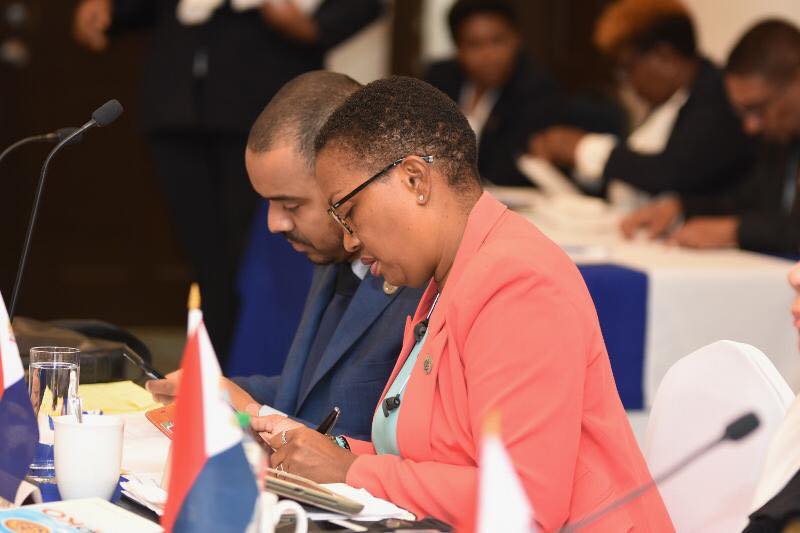Ipko-agreements are detailed, yet vague

PHILIPSBURG – Delegates to the Inter-Parliamentary Kingdom Consultation (Ipko) that ended on Friday found common ground for a list of agreements that was signed by all delegations.
The document contains quite some procedural agreements and also a long paragraph about the effect the political situation in Venezuela has in particular on Aruba and Curacao and to a lesser extent on St. Maarten.
For St. Maarten Venezuela is an “emerging problem” due to the influx of refugees via the French side of the island, the document states. The delegations agree that the “worrisome influx of refugees” is a source of concern for parliamentarians in each of the four countries.”
The current situation has “significant social and financial consequences for the countries,” the document states. “Their international reputation is also at stake, due to recent alarming reports from human rights organizations.”
The Ipko-delegations consider it of “great importance” that the governments of the four countries keep looking together for solutions.”
Based on article 36 of the Kingdom Charter, Curacao will shortly ask the Netherlands for financial and technical assistance to deal with the Venezuelan refugees.
Aruba and Curacao have asked the Kingdom to make it possible for the two countries to become part of a European program for the support of South American countries that are confronted with large numbers of Venezuelan refugees.
But Dutch delegates from the left (Ronald van Raak) and the right (André Bosman) have already made clear that the Venezuelan refugees are the responsibility of Aruba and Curacao and that these countries ought to get their legislation up to par. That opinion however, is not part of the list of agreements.
The agreement about the dispute regulation is rather vague. The list only contains the positions of the respective delegations. While St. Maarten, Curacao and Aruba insist that such a law should respect the agreement Ipko-delegates reached in 2015 (binding advice, independent regulator and only legal disputes), the Dutch delegation withdrew to a non-committal position, saying that the legislative process will have to run its course.
The Dutch parliament will handle the dispute regulation draft law in June, before the next Ipko that is scheduled to take place from June 25 to 28 in the Netherlands.
On the agenda for that Ipko-meeting are among other issues: recent developments per country, reports from working groups about issues like integrity and the Kingdom Charter, the situation in Venezuela and election observation.
###
Related articles:
Ipko positive about structural election observation
Dispute regulation heats up Ipko-meeting
Opinion piece: “Return on investment“


























